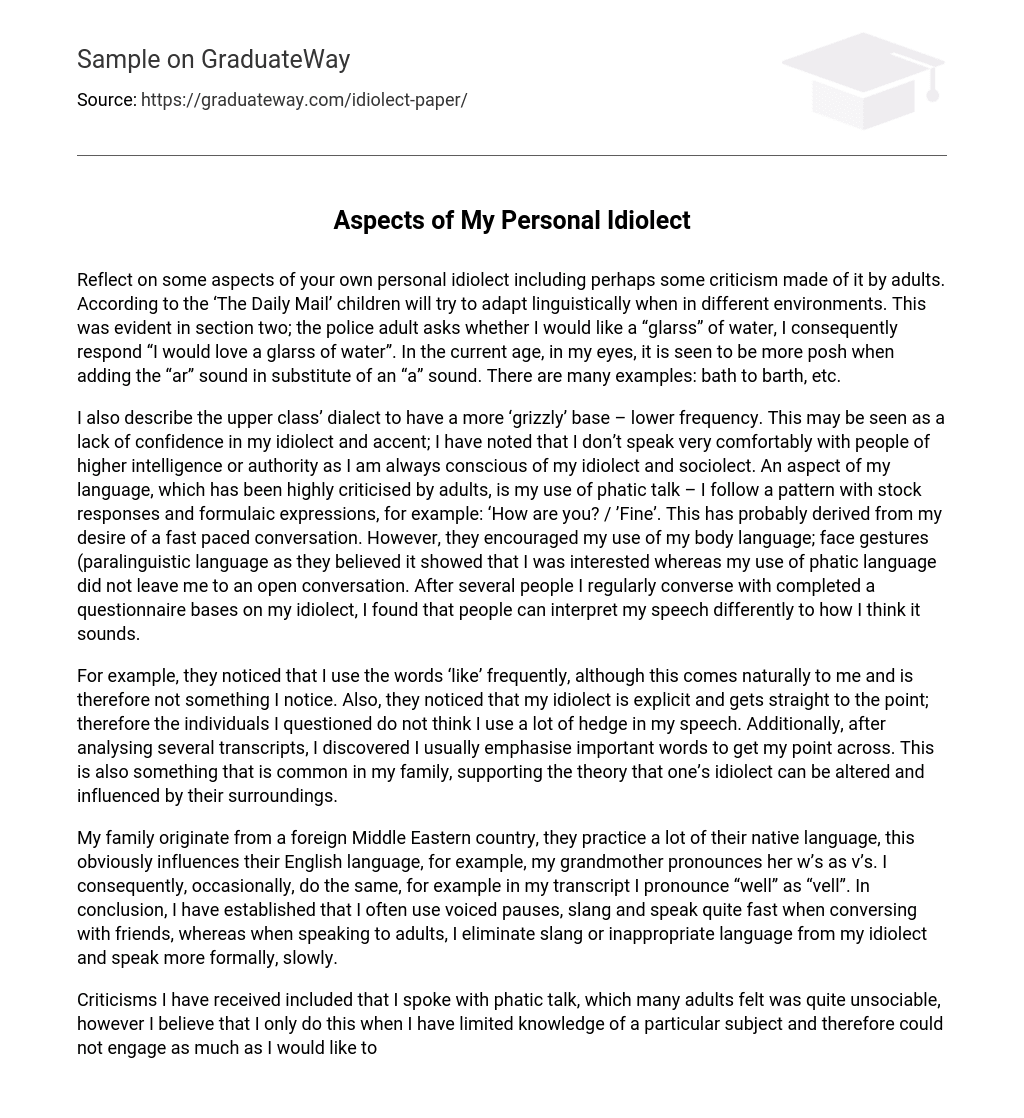Reflect on some aspects of your own personal idiolect including perhaps some criticism made of it by adults. According to the ‘The Daily Mail’ children will try to adapt linguistically when in different environments. This was evident in section two; the police adult asks whether I would like a “glarss” of water, I consequently respond “I would love a glarss of water”. In the current age, in my eyes, it is seen to be more posh when adding the “ar” sound in substitute of an “a” sound. There are many examples: bath to barth, etc.
I also describe the upper class’ dialect to have a more ‘grizzly’ base – lower frequency. This may be seen as a lack of confidence in my idiolect and accent; I have noted that I don’t speak very comfortably with people of higher intelligence or authority as I am always conscious of my idiolect and sociolect. An aspect of my language, which has been highly criticised by adults, is my use of phatic talk – I follow a pattern with stock responses and formulaic expressions, for example: ‘How are you? / ’Fine’. This has probably derived from my desire of a fast paced conversation. However, they encouraged my use of my body language; face gestures (paralinguistic language as they believed it showed that I was interested whereas my use of phatic language did not leave me to an open conversation. After several people I regularly converse with completed a questionnaire bases on my idiolect, I found that people can interpret my speech differently to how I think it sounds.
For example, they noticed that I use the words ‘like’ frequently, although this comes naturally to me and is therefore not something I notice. Also, they noticed that my idiolect is explicit and gets straight to the point; therefore the individuals I questioned do not think I use a lot of hedge in my speech. Additionally, after analysing several transcripts, I discovered I usually emphasise important words to get my point across. This is also something that is common in my family, supporting the theory that one’s idiolect can be altered and influenced by their surroundings.
My family originate from a foreign Middle Eastern country, they practice a lot of their native language, this obviously influences their English language, for example, my grandmother pronounces her w’s as v’s. I consequently, occasionally, do the same, for example in my transcript I pronounce “well” as “vell”. In conclusion, I have established that I often use voiced pauses, slang and speak quite fast when conversing with friends, whereas when speaking to adults, I eliminate slang or inappropriate language from my idiolect and speak more formally, slowly.
Criticisms I have received included that I spoke with phatic talk, which many adults felt was quite unsociable, however I believe that I only do this when I have limited knowledge of a particular subject and therefore could not engage as much as I would like to. I have been encouraged to continue to use paralinguistic features. In the future, I will aim to speak with less speed so my language is more fluent and as a result reduce the number of false starts, utterances or fillers. Throughout, this project I have become more conscious of my accent, idiolect and language.





